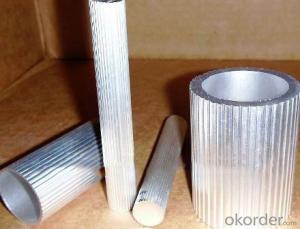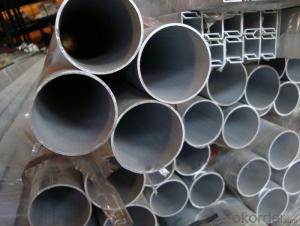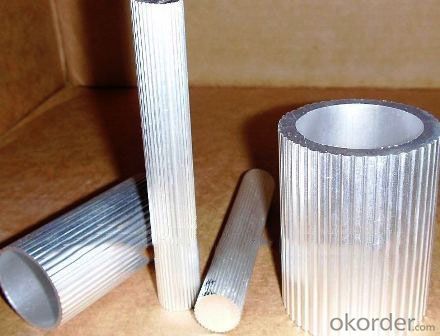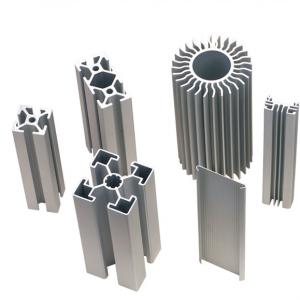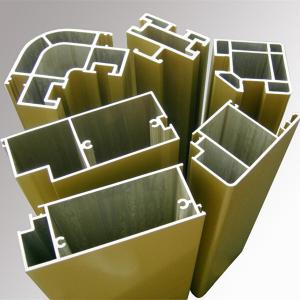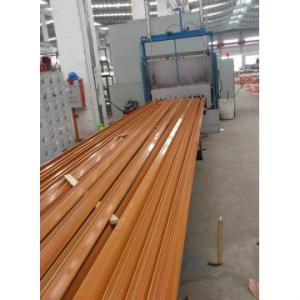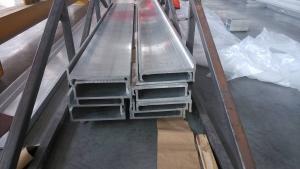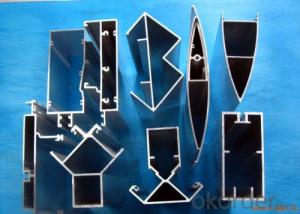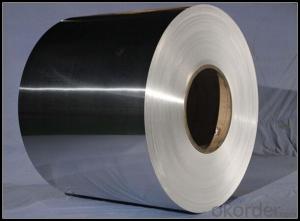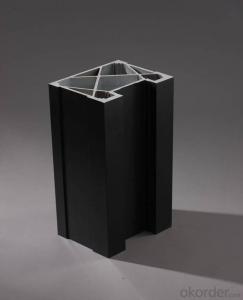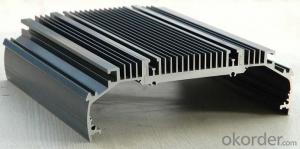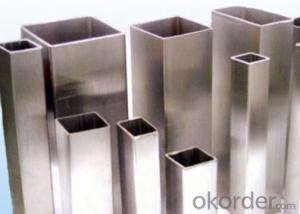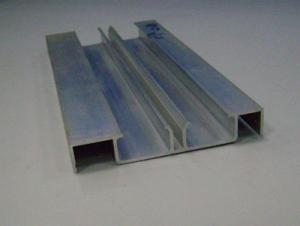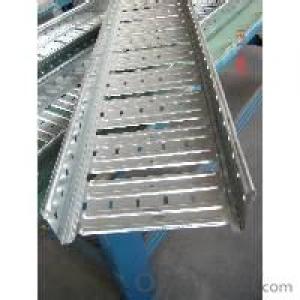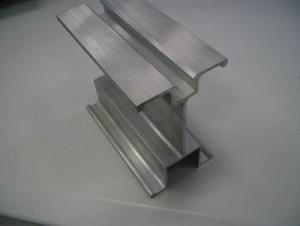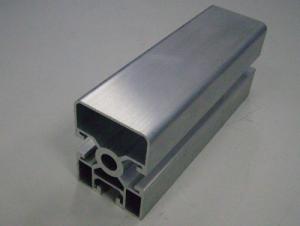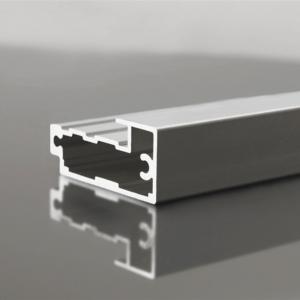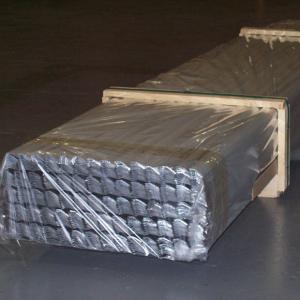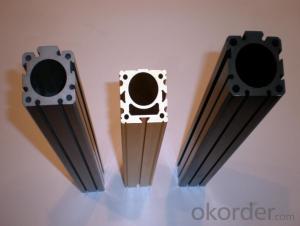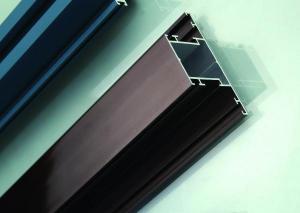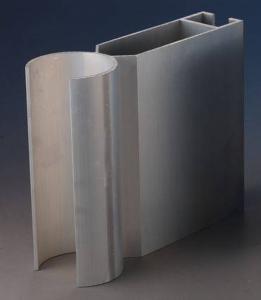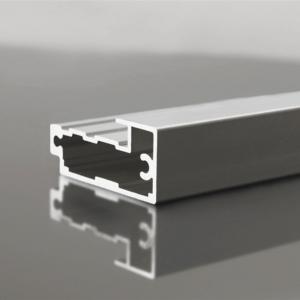Aluminum Extrusion Tube Profiles - Industrial Aluminum Profile
- Loading Port:
- China Main Port
- Payment Terms:
- TT OR LC
- Min Order Qty:
- -
- Supply Capability:
- -
OKorder Service Pledge
OKorder Financial Service
You Might Also Like
ALUMINUM INDUSTRIAL ALUMINUM PROFILE
Industrial aluminium profile
1)Material : 6063 6061 6060 and different aluminium alloy
2)Status:T4 T5 T6 or other special status
3)Surface treatment: mill finish, anodized sliver ,anodized bronze, anodized champagne, anodized black pearl, various power coating color, electrostatic sliver, electrostatic champagne, electrostatic golden, electrostatic titanium , machine polish sliver, machine polish bronze, wooden grain color, and Fluorocarbon spraying.
4)Annual capacity : 120000TON
5)Quality : China Nation Standard GB/T 5237 2008 (advanced class)
6)Use: can be widely using aluminium window, door, curtain wall, hand railing , normal aluminium profile, decorative and industrial aluminium profile
7)Advantage: Famous Brand reasonable&market price, soonest delivery and good after sale- service
8)Type of package:protection foam+heat contracted plastic film. / wooden packing / Metal pallet or depand on clientspecial requirement.
9)Payment term:T/T:30% of total value as deposite should paid by T/T within 3 days when confirmation ,and the remaining sum should be paid by T/T before delivery.L/C: 100% at sight
10)Delivery Day: 15-30days
11)Honor : CHINA FAMOUS TRADEMARK, CHINA TOP BRAND, ISO9001-2000, CHINA SQUARE&ROUND COMMITTEE DNV
- Q: Are aluminum profiles suitable for exhibition kiosks?
- Yes, aluminum profiles are highly suitable for exhibition kiosks. Aluminum is a lightweight and durable material, making it perfect for constructing portable and easily transportable kiosks. Its strength allows for the creation of stable and sturdy structures, ensuring the safety of both the exhibitors and visitors. Additionally, aluminum profiles can be easily customized and assembled, allowing for flexibility in design and layout. They also offer a sleek and modern appearance, enhancing the overall aesthetics of the exhibition kiosk. Furthermore, aluminum is resistant to corrosion, making it suitable for indoor and outdoor use, even in challenging environmental conditions. Overall, the versatility, durability, and aesthetic appeal of aluminum profiles make them an excellent choice for exhibition kiosks.
- Q: Can aluminum profiles be used for greenhouse construction?
- Yes, aluminum profiles can be used for greenhouse construction. Aluminum is a popular choice for greenhouse frames due to its durability, lightweight nature, and resistance to corrosion. It is also easy to work with, allowing for flexibility in design and construction. Aluminum profiles provide a strong and stable structure that can withstand harsh weather conditions and provide long-term support for the greenhouse covering materials. Additionally, aluminum frames require minimal maintenance and have a longer lifespan compared to other materials, making them a cost-effective option for greenhouse construction.
- Q: Are aluminum profiles suitable for electrical applications?
- Yes, aluminum profiles are suitable for electrical applications. Aluminum is a versatile and lightweight metal that offers excellent electrical conductivity, making it a popular choice for various electrical components and systems. Aluminum profiles can be used for electrical enclosures, heat sinks, bus bars, and other electrical connectors. One of the key advantages of aluminum profiles in electrical applications is their high thermal conductivity. Aluminum efficiently dissipates heat, thereby helping to keep electrical components cool and preventing overheating. This is especially important in applications where heat generation is a concern, such as in power electronics or LED lighting. Moreover, aluminum profiles offer good corrosion resistance, which is crucial in electrical applications where exposure to moisture or harsh environments is common. Aluminum naturally forms a protective oxide layer on its surface, which acts as a barrier against corrosion, ensuring the longevity and reliability of electrical systems. Another benefit of aluminum profiles is their ease of fabrication. Aluminum can be easily machined, welded, and extruded into various shapes and sizes, allowing for customized designs and easy installation. This flexibility makes aluminum profiles suitable for a wide range of electrical applications, from small consumer electronics to large-scale industrial systems. Additionally, aluminum is a cost-effective material compared to other metals like copper or steel, offering significant savings in manufacturing and maintenance costs. It is also a highly recyclable material, making it an environmentally friendly choice for electrical applications. In conclusion, aluminum profiles are indeed suitable for electrical applications due to their excellent electrical conductivity, thermal efficiency, corrosion resistance, ease of fabrication, cost-effectiveness, and sustainability.
- Q: What are the different surface etching options for aluminum profiles?
- Some different surface etching options for aluminum profiles include chemical etching, mechanical etching, and laser etching. Chemical etching involves using a chemical solution to remove layers of the aluminum surface, creating a desired pattern or texture. Mechanical etching involves using abrasive materials or tools to physically remove material from the surface. Laser etching uses a laser beam to selectively remove material from the surface, creating precise and intricate designs.
- Q: Is it possible to utilize aluminum profiles as a material for flooring?
- <p>Yes, aluminum profiles can be used for flooring, particularly in industrial or commercial settings where durability and resistance to wear are required. They are known for their strength, lightweight, and corrosion resistance, making them suitable for high-traffic areas. Aluminum profiles can be used to create grid systems or as support structures for modular flooring solutions. However, they are not typically used as the direct surface material for flooring due to their hardness and potential for thermal conductivity, which can make them uncomfortable underfoot. Instead, they are often part of a system that supports other flooring materials like tiles or planks.</p>
- Q: Can aluminum profiles be used in solar panel installations?
- Solar panel installations can utilize aluminum profiles, which are favored in construction and engineering due to their lightweight, durability, and resistance to corrosion. These properties make aluminum profiles an ideal material for solar panel installations. Aluminum profiles can be employed to construct robust frames that securely hold solar panels in place. The lightweight nature of aluminum facilitates easy transportation and installation of the panels, reducing overall installation time and cost. Moreover, the corrosion resistance of aluminum ensures that the frames withstand exposure to various weather conditions, making them suitable for both residential and industrial installations. In addition, aluminum profiles can be easily customized and fabricated to meet specific project requirements. They can be extruded into various shapes and sizes, allowing flexibility in designing frames to accommodate different panel dimensions and orientations. Anodizing or powder coating can also be applied to aluminum profiles for added protection against environmental factors and to enhance the installation's aesthetic appeal. To summarize, aluminum profiles are an excellent choice for solar panel installations. Their lightweight nature, durability, resistance to corrosion, and customization options make them suitable for a wide range of applications, ensuring the longevity and efficiency of the solar panel system.
- Q: What are the differences between standard and non - standard shapes?
- This is not an exact statement for aluminum standard and non - standard, if only to meet the standards is not comprehensive, such as building materials and industrial aluminum profiles of the points, take the building materials, building materials have Aluminum Alloy standard GB5237.1-6-2008, in this standard, the size of section tolerance, mechanical properties, surface treatment quality by grade are made clear, such as the wall thickness profiles allow positive and negative tolerance. The provisions of the standard aluminum doors and windows, for aluminum windows, the wall thickness must be greater than 1.4mm, used for aluminum doors, and its wall thickness must be greater than 2mm. Thus, the aluminum should be standard and non-standard argument, but the qualified and unqualified products, for material strength, surface treatment quality, form and position tolerance must meet the standard requirements for wall thickness according to the thickness of the corresponding use of selected aluminum.
- Q: Are aluminum profiles resistant to chemicals and acids?
- Generally, aluminum profiles exhibit resistance to chemicals and acids due to their natural oxide layer, making them appropriate for diverse industrial uses. Nevertheless, the level of resistance may differ depending on the exact type of chemical or acid employed, as certain aggressive substances can still corrode aluminum. In these instances, one can enhance the resistance by applying supplementary protective coatings or surface treatments. To guarantee the utmost performance and durability, it is recommended to consult experts or manufacturers to ascertain the compatibility of aluminum profiles with specific chemicals or acids.
- Q: Can aluminum profiles be used in the construction of modular office spaces?
- Yes, aluminum profiles can be used in the construction of modular office spaces. Aluminum profiles are lightweight, durable, and corrosion-resistant, making them an ideal choice for modular construction. They can be easily fabricated into various shapes and sizes, allowing for versatility in design. Additionally, aluminum profiles offer excellent thermal insulation properties and can be easily integrated with other building components, such as glass panels or insulation materials.
- Q: What are the advantages and disadvantages of the use of magnesium profiles compared with aluminum profiles?
- Note 1: the tensile strength of the magnesium alloy material made of the same volume of the frame strength than Aluminum Alloy, frame to achieve the strength to increase the thickness of the material and the tube, so from the perspective of the weight and Aluminum Alloy compared to magnesium alloy does not have any advantage.2 fatigue proof strength: the same volume of magnesium alloy material, the durability of the frame is worse than the aluminum alloy frame. It's also a fatal flaw for magnesium alloys. With the number of cycling more, the number of the stress is higher, intensity will be significantly reduced, even life is no more than 2-3 in the frame, so professional riders rarely use magnesium alloy frame, if used in the game, is calculated using the mileage to abandon the form of replacement.
Send your message to us
Aluminum Extrusion Tube Profiles - Industrial Aluminum Profile
- Loading Port:
- China Main Port
- Payment Terms:
- TT OR LC
- Min Order Qty:
- -
- Supply Capability:
- -
OKorder Service Pledge
OKorder Financial Service
Similar products
Hot products
Hot Searches
Related keywords
